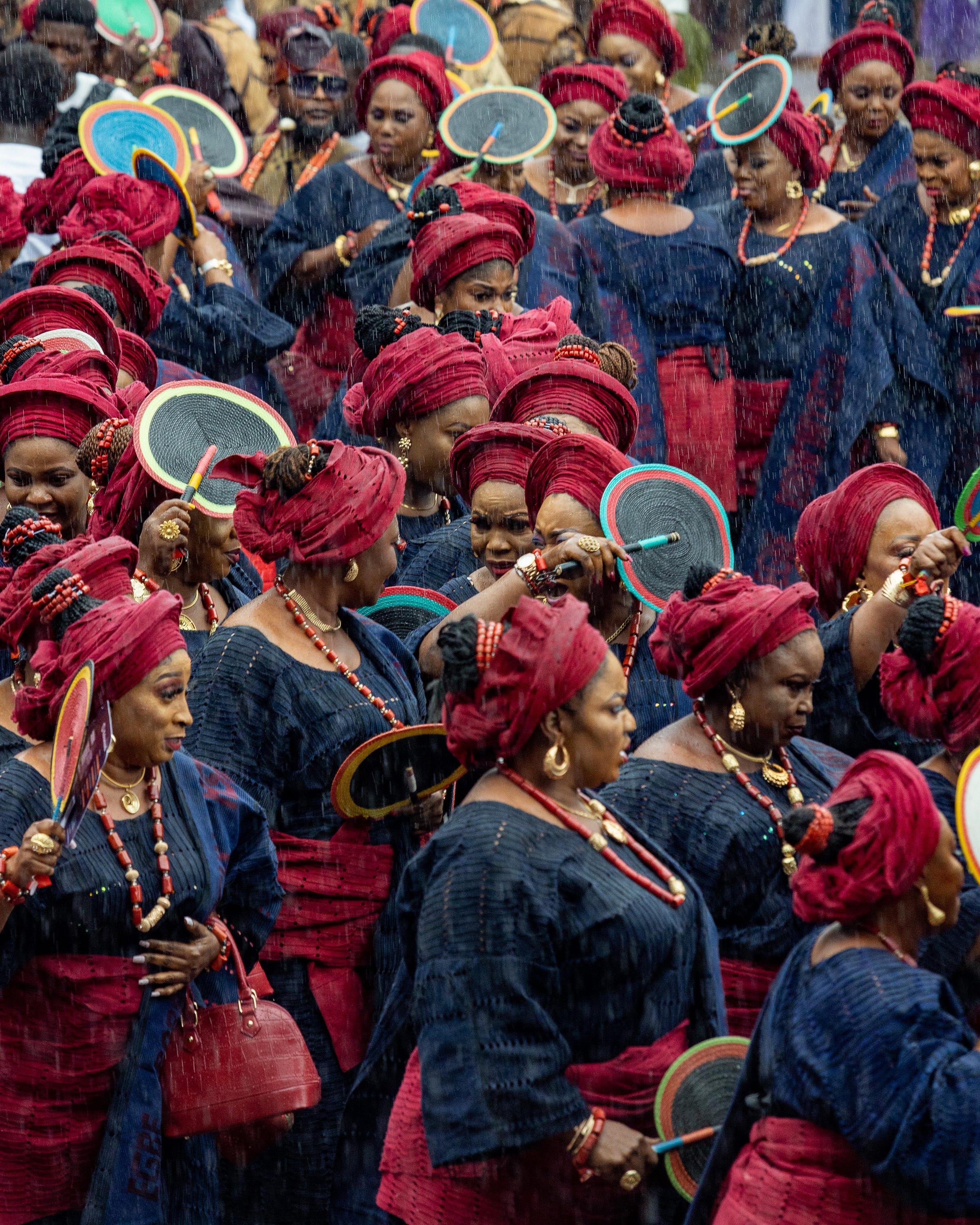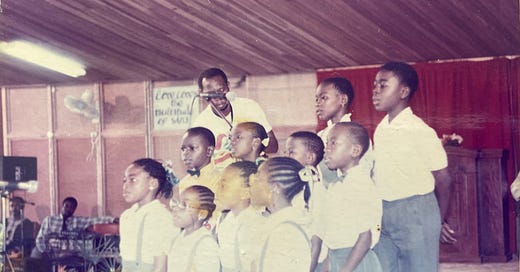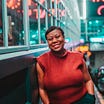
And co. is Nigerian slang for matching outfits. It is seen across many cultures during landmark occasions and is possibly our peak expression of belonging.
In my personal photograph, I see a little girl who loves to sing lifting her chin and preparing to lift her voice. She is finally old enough to join the children’s choir, and is swelling with the pride and joy of being one of the ten; chosen from scores of girls and boys to wear a white-on-gray choir uniform.
In the photograph from the Tender Photo archive, I imagine the little girl as now thirty-something years older and basking in a sea of uniformly dressed women. Decked in red gèlè and ìpèlé, blue ìró and bùbá, she feels a familiar sense of belonging again. It has been too many years since that day with the children's choir, since she was cocooned by her people, since she felt like a part of something this meaningful, since she jápa’d to the United States.
I currently live about 6,000 miles from home and only have a handful of family photos tucked into a small 4x6-inch album. The photograph I chose was on the album’s very last page, and though I am not in the frame, I am not too far behind it. The image conjures pride as I recall time spent on the same stage as a child. The cracked floor and velvet backdrop unlock several larger-than-life early memories of presenting songs, dancing in choreographies, and performing in an epic musical, all while wearing different kinds of and co. Taiwo Arifayan’s photo of a cross-section of richly garbed women from the Ojúdè Ọba festival invokes a similar sense of pride and belonging. And I notice another bit of cosmic resonance: the backdrop in the older photograph is oxblood, the same shade of red as the women’s gèlè. ¶
About the Contributor
Damilola Onwah's essays, fiction, and poetry have been published in Catapult, Brittle Paper, The Bangalore Review, and elsewhere. She was a 2022 fellow of the Writers’ League of Texas and has been awarded residencies by Hedgebrook and Monson Arts. She lives in Cambridge, MA. Read more of her work at www.damilolaonwah.com.
This is the #1 edition of KINDRED, a series on TENDER PHOTO. Each contributor selects a photograph from their family or personal album, pairs it with another photograph from the Tender Photo archive, and writes a short reflection on why they have selected both photographs. The idea is to find an analogy between two photographs that might be similar or dissimilar, but connected to an experience, emotion, or idea.
TENDER PHOTO is a bi-weekly newsletter on African photography, published Wednesdays and Saturdays. See the archive for more features and commentaries on early to mid-career photographers, or submit your work. If this newsletter was shared with you, consider subscribing, or forward to a friend. Please whitelist the newsletter to ensure you never miss it.





